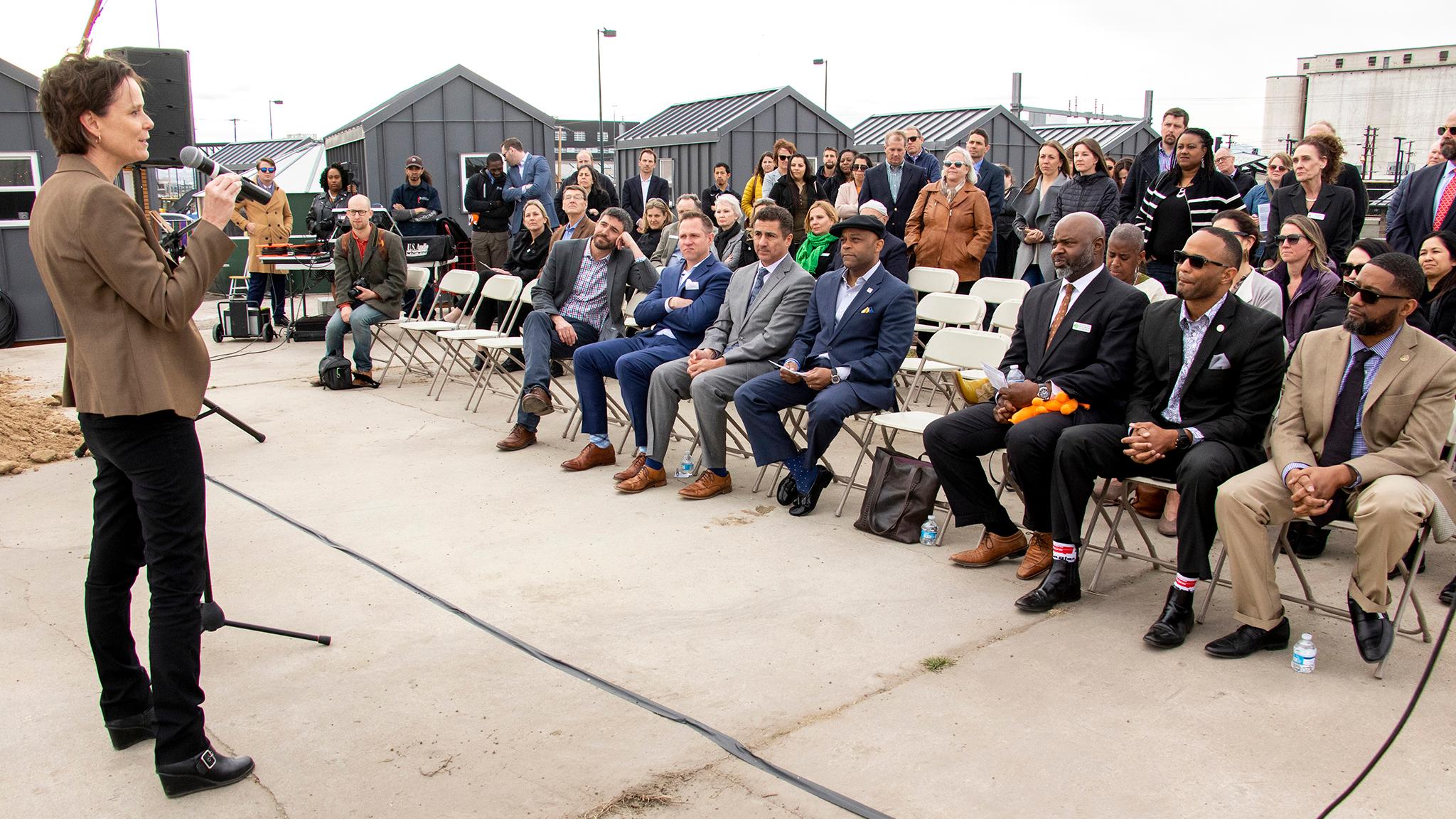Denver's chief housing officer isn't waiting for her new cabinet-level department to be formed.
"We'll start to do moves right now," Britta Fisher said Friday after Mayor Michael Hancock announced the new Department of Housing and Homelessness would be included in his 2020 budget proposal and that Fisher would lead it.
Hancock said it has become evident Denver needed "tighter coordination" and clearer leadership to tackle its housing crisis. Those gaps had long been identified by agencies serving people living in homelessness and by others, including the city auditor in reports released in 2015 and earlier this week.
Hancock said it has taken time to review city practices and determine how a new department would be organized. He also said putting the right leadership in place was delayed a bit by the recent maternity leaves of Fisher and of Laura Brudzynski, another housing official with Denver Economic Development & Opportunity who will be moving to the new department.
The core of Fisher's department will be her current housing office within Denver Economic Development & Opportunity and Denver's Road Home, the arm of Denver Human Services that works with nonprofits to coordinate support for people experiencing homelessness. Other city services that support housing and address homelessness may also be pulled into the department.
Hancock, who is running for re-election this May, announced the move at the annual forum the city holds to draw on government, private and nonprofit housing expertise. The mayor said attendees this year would be asked for their ideas for the new department.
Hancock also announced at the forum that $15.7 million of city, business and philanthropic money will be spent over the next three years to get people off the streets and into housing and shelter. A third of that will be used to provide more vouchers to move people into permanent housing, and the rest for day shelters. The city has committed $11.2 million, secured $1 million from the Anschutz Foundation and was looking for more donors.
Hancock said establishing a housing department was informed by lessons learned from Housing Opportunities for People Everywhere, or HOPE, which he created in his office in 2017. HOPE was later moved it to the Office of Economic Development, recently rebranded as Denver Economic Development & Opportunity, and developed a plan to address homelessness and housing that Road Home had a part in implementing.
Economic development office's housing responsibilities, meanwhile, have included a program to help moderate-income families buy homes. Late last year, the city auditor released a report calling on the office to implement stronger controls "over pricing, income verification and recording to ensure the city is taking good care of its affordable housing supply and working to keep units affordable for the long term."
Fisher has said many of the problems uncovered in that audit preceded her and that she welcomed the auditor's recommendations.
Fisher has had to contend with other problems in the home buyer program, in which about 1,400 units are intended for people earning below the area's average median income and who meet other requirements. The economic development office had announced last year that more than 300 homes slipped out of the program because covenant restrictions on their prices were not adhered to when the original buyers sold them. The office has been working since to bring homeowners back into compliance.












